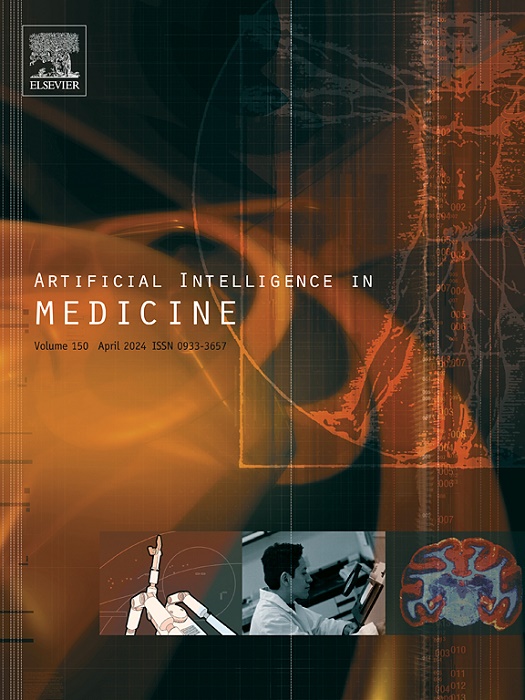开发新的动态预测生存时间的方法来分析阿尔茨海默病的短期和长期进展
IF 6.2
2区 医学
Q1 COMPUTER SCIENCE, ARTIFICIAL INTELLIGENCE
引用次数: 0
摘要
跟踪和监测轻度认知障碍(MCI)患者在阿尔茨海默病(AD)即将发作时及时干预是至关重要的。然而,现有的MCI转化为AD的动态生存预测模型大多基于危险率,其解释不太直观,并且需要遵守比例风险假设。为了解决这个问题,我们提出了一个基于限制平均生存时间(RMST)时间尺度指标的贝叶斯联合模型(JM),该模型可以捕获多个纵向协变量的轨迹,并动态预测患者到事件的时间。通过蒙特卡罗仿真,可以证明JM方法与静态模型相比具有更好的预测性能。为了预测不同阶段MCI患者AD的动态进展,基于landmark (LM)方法和RMST的JM方法,我们利用ADNI数据库建立了基于LM的短期动态预测模型(LM- st模型)和基于JM的长期动态预测模型(JM- lt模型)。内部和外部验证结果表明,LM-ST和JM-LT模型的预测性能优于静态RMST模型。此外,我们还为这两种动态预测模型创建了一个在线网络工具,以供临床应用。综上所述,我们提出了一种新的方法,并将其与现有的AD进展LM方法相结合,提高了预测能力,为医疗决策提供了科学依据。本文章由计算机程序翻译,如有差异,请以英文原文为准。
Developing novel dynamic prediction methods for survival time to analyze short-term and long-term progression of Alzheimer's disease
Tracking and monitoring mild cognitive impairment (MCI) patients to intervene promptly at the imminent onset of Alzheimer's disease (AD) are crucial. However, existing dynamic survival prediction models for the conversion from MCI to AD are mostly based on hazard rates, which are less intuitive to interpret and require adherence to the proportional hazards assumption. To address this, we propose a Bayesian joint model (JM) based on the time scale indicator of the restricted mean survival time (RMST), which can capture the trajectories of multiple longitudinal covariates and dynamically predict the patient time to event. Using Monte Carlo simulation, it can be demonstrated that the JM method has a better prediction performance compared with the static model. To predict the dynamic progression of AD in MCI patients at different stages, based on the landmark (LM) method and the JM method for RMST, we developed an LM-based model for short-term dynamic prediction (LM-ST model) and a JM-based model for long-term dynamic prediction (JM-LT model) utilizing the ADNI database. The internal and external validation results indicate that the predictive performance of the LM-ST and JM-LT models surpasses that of the static RMST model. Additionally, an online web tool for the two dynamic prediction models was created for clinical application. In summary, we propose a novel method and combined it with the existing LM method for AD progression, which improves the predictive power and provides a scientific basis for medical decision-making.
求助全文
通过发布文献求助,成功后即可免费获取论文全文。
去求助
来源期刊

Artificial Intelligence in Medicine
工程技术-工程:生物医学
CiteScore
15.00
自引率
2.70%
发文量
143
审稿时长
6.3 months
期刊介绍:
Artificial Intelligence in Medicine publishes original articles from a wide variety of interdisciplinary perspectives concerning the theory and practice of artificial intelligence (AI) in medicine, medically-oriented human biology, and health care.
Artificial intelligence in medicine may be characterized as the scientific discipline pertaining to research studies, projects, and applications that aim at supporting decision-based medical tasks through knowledge- and/or data-intensive computer-based solutions that ultimately support and improve the performance of a human care provider.
 求助内容:
求助内容: 应助结果提醒方式:
应助结果提醒方式:


